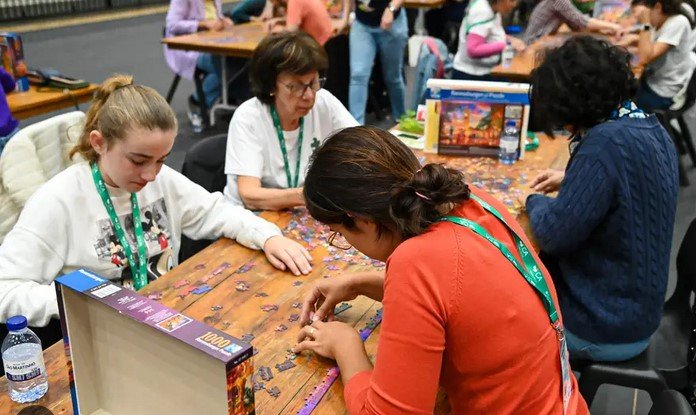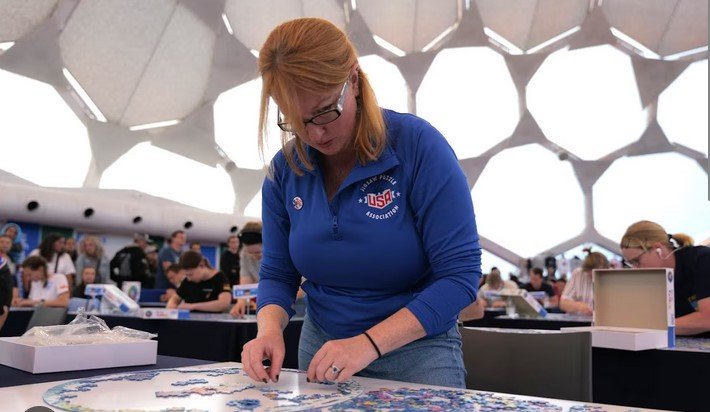Winning puzzle competitions requires more than just a love for puzzles. It demands a unique set of skills, mental sharpness, and effective strategies. Whether you’re participating in jigsaw, Sudoku, or logic puzzles, honing certain skills can significantly improve your chances of success. In this article, we’ll explore the key skills needed for winning puzzle competitions and how you can develop them to perform at your best.

Critical Thinking and Problem-Solving Skills
One of the most important skills for winning puzzle competitions is critical thinking. Successful puzzlers need to analyze each challenge carefully, identify patterns, and apply logical reasoning to find solutions. Critical thinking involves breaking down a complex problem into smaller, more manageable parts. It allows you to spot clues and solve puzzles step by step, which is particularly important in time-pressured competitions.
In competitions like Sudoku or crosswords, where logic and pattern recognition are essential, critical thinking can make all the difference. Developing this skill will allow you to approach puzzles from different angles, ensuring you can quickly recognize relationships between pieces or numbers. With regular practice, critical thinking becomes an automatic process, allowing you to solve puzzles faster and more accurately.
Time Management and Speed
Time management is crucial in puzzle competitions, as most events are timed. The ability to solve puzzles quickly without compromising accuracy is essential for success. Efficient time management ensures that you allocate enough time to each puzzle, prioritize tasks, and avoid spending too much time on any one challenge.
To improve your speed, practice solving puzzles under timed conditions. Set a timer and challenge yourself to complete puzzles within a set time frame. This will help you become more comfortable with the pressure of a timed competition and improve your ability to solve puzzles quickly. Developing speed doesn’t mean rushing through puzzles—it means learning how to make quick decisions, recognizing patterns faster, and knowing when to move on to the next challenge.
Attention to Detail
Another key skill for winning puzzle competitions is attention to detail. Puzzle competitions often involve complex patterns, intricate clues, and hidden elements that can be easily overlooked. A keen eye for detail can help you spot these small but important features, which might be the key to solving the puzzle.
In competitions like jigsaw puzzles, every piece matters, and spotting subtle differences in shape, color, or pattern can help you find the right fit. Similarly, in logic puzzles or crosswords, paying attention to small clues in the puzzle can lead to big breakthroughs. To improve attention to detail, practice puzzles that require precision and focus on small elements to increase your ability to spot important information quickly.
Find the Latest Trends and Resources
Y4YY is a hub for discovering useful tools, tips, and the latest trends across various industries. For those interested in gaming, gambling360 offers a trusted guide to top online casinos in Australia. Explore new opportunities for learning and entertainment today.
Adaptability and Flexibility
Adaptability is another critical skill for winning puzzle competitions. Puzzles often throw unexpected challenges your way, and the ability to adapt quickly is essential. For instance, you may encounter a particularly tricky section of a puzzle or a time constraint that forces you to adjust your strategy.
Being adaptable means being open to changing your approach when necessary. It may involve switching techniques, revisiting earlier steps, or changing your focus during the competition. The best puzzlers can adjust their strategies based on the type of puzzle they are solving and the time they have left. Practicing with different types of puzzles and scenarios will help you become more flexible and better prepared for anything that comes your way during a competition.
Persistence and Focus
Finally, persistence and focus are vital for success in puzzle competitions. Puzzle-solving can be frustrating, especially when you hit a roadblock. The ability to stay focused and keep going, even when the solution seems elusive, is a key factor in winning.
In a competition, distractions are common, and staying focused on the task at hand is essential. Being persistent means not giving up after a mistake or a challenge, but instead learning from it and trying again. Training your mind to stay focused and motivated will help you maintain a high level of performance throughout the competition.
Conclusion: Mastering Key Skills for Puzzle Competitions
Curating Quality Resources for Digital Leisure
Navigating the vast online environment requires efficiency, and users often seek out curated resources to save time and ensure quality across different interests. Whether researching a new technical trend or looking for a trusted source of digital entertainment, finding reputable platforms is key to a rewarding online experience. For those interested in competitive leisure, consulting reliable lists of sports betting sites helps ensure security and fairness. Prioritizing platforms known for transparency and user-centric design guarantees that all digital engagement is both safe and enjoyable.
In conclusion, winning puzzle competitions requires a combination of critical thinking, time management, attention to detail, adaptability, and persistence. These skills work together to improve your ability to solve puzzles quickly, accurately, and effectively. Regular practice, preparation, and a strong mental approach will help you hone these skills over time. With dedication and focus, you can improve your puzzle-solving abilities and become a strong competitor in any puzzle competition.



